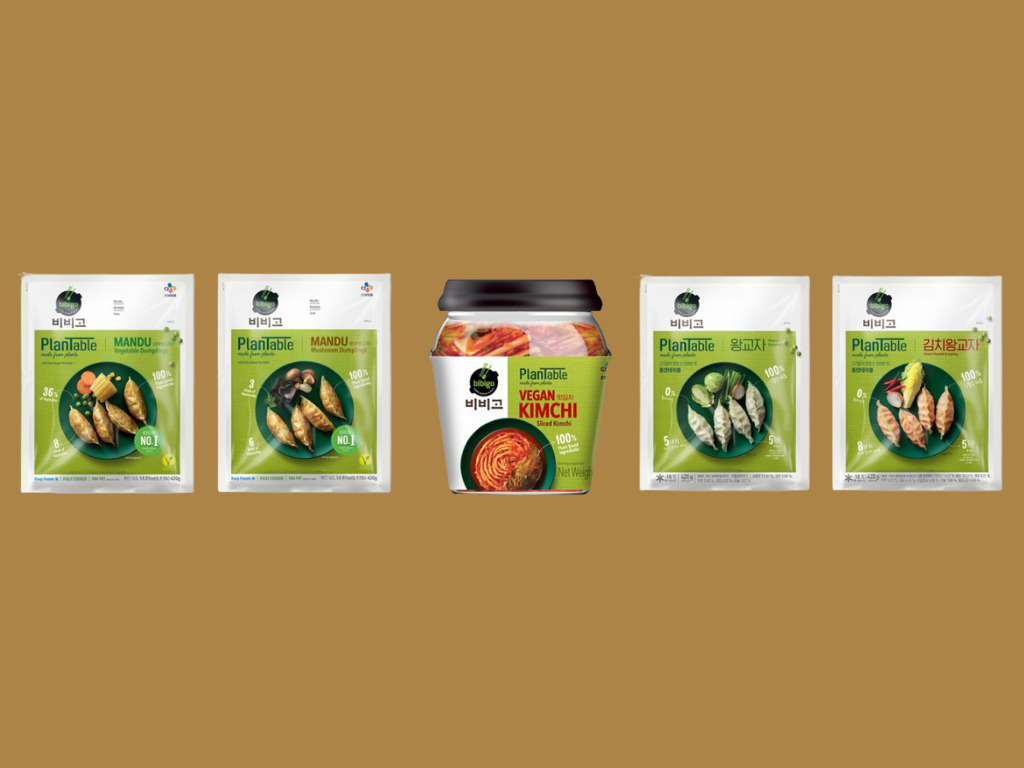3 Mins Read
A growing number of Korean food companies are diving into the vegan meat trend as millenial and Gen Z consumers look to healthier and more planet-friendly protein options. Big Food players are joining new startups in launching fully animal-free ranges as the sector is poised for strong growth. According to the Korean Herald, the Korea International Trade Association predicts plant-based meat will overtake conventional meat for market share by 2040.
The Korea Vegetarian Union estimates that 500,000 people follow a strict vegan diet within the country, just under 1% of the population. Up to 10 million, or around one fifth of the country, consider themselves flexitarian. All of them represent potentially loyal consumers to Korean food companies. As a result, existing manufacturers are releasing vegan brands and new startups are launching frequently.
More choice than ever before
CJ CheilJedang, licensee of SPAM producer Hormel’s products in South Korea, has announced that it is launching a new vegan brand called PlantTable. It will begin by debuting two Bibigo Dumpling products in Singapore and Australia. The meat replacement is made from soybeans. Vegan kimchi will be launched shortly after, with plans to expand the range in 2022, including into the U.S., Europe, and halal markets.
“We are planning to expand our vegan product offerings on a full-scale next year, and launch vegan versions of home meal replacement products too,” a spokesperson for CJ CheilJedang told the Herald.
Earlier in the year, it was revealed that South Korean tofu giant Pulmuone was also entering the vegan meat scene with 20 products planned and eight fully developed. The soy-based meats have been available commercially since November. The company claims to have received positive feedback, with consumers likening the products to “actual pork”. This year, Pulmuone made progress in the U.S. The company signed a deal to supply California’s WaBa Grill restaurants with vegan meat across 200 locations.
South Korea’s leading vegan beef brand Unlimeat, which is made from upcycled food waste, is on an upward trajectory. Following a fresh $23 million investment round, it announced the construction of one of Asia’s largest plant-based meat factories. Parent company Zikooin makes more than just Unlimeat. A range of products including plant-based meatballs and cheddar cheese are all available. The new facility, spanning just shy of 9,000 square metres, is expected to be completed by mid-2022. Domestic brand partnerships, including one with Domino’s Pizza, have propelled Unlimeat to popularity.

The other side of the industry
South Korea has been producing more than just vegan meat. The country’s scientists have been busy progressing the cultivated meat and seafood industry, and the sector is a dynamic shift away from resource-heavy conventional animal agriculture and aquaculture.
Last week, South Korea’s CellMEAT unveiled the world’s first cultivated Dokdo shrimp prototype. It was made using the company’s serum-free culture medium that allows for prediction costs to be slashed. The company is attempting to move towards king crab and lobster developments.
Sejong University researchers laid claim to the country’s first cultivated pork prototype earlier this year. In collaboration with Seoul National University and domestic startup Space F, commercialisation is being planned. A beef analogue is being developed alongside.
Lead image created using PlantTable product images.





